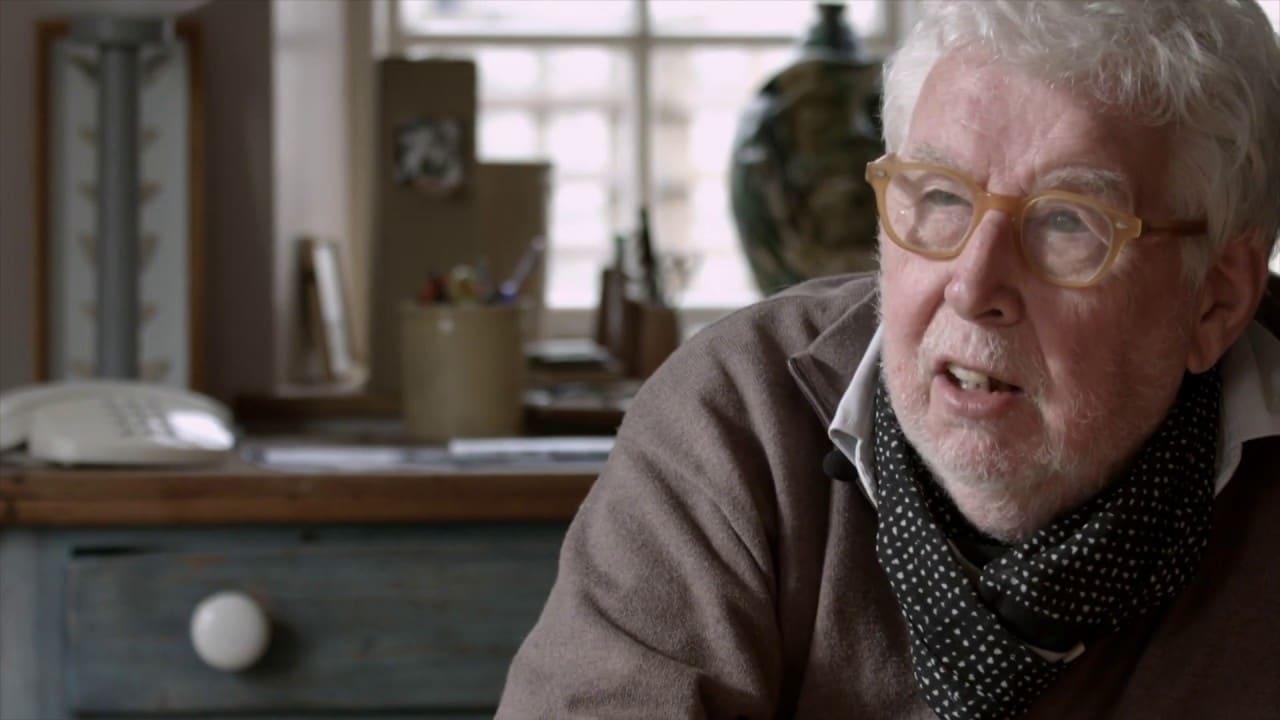Why was Mrs Sibelius so miserable?
mainA groundbreaking biography of Aino Sibelius suggests she was tough, inside and out.
Aino would give her husband the silent treatment for weeks on end and order him to write symphonies, not short pieces.
She would lock various of her six children in a cupboard if they misbehaved.
Her daughter Ruth Sibelius said: ‘She had a very strong character, and such people do not always fully understand others. The weak ones.’
Aino died in 1969, aged 97.






Funny lot, the Finns. I love ’em. They have nooks and crannies of
spiritual depth we over-digitalized westerners can’t understand. I ‘m just going to have to read Andrew Barnett again….
I wouldn’t say Finns are underdigitalized.
Their ways of expressing thoughts and feelings could be more diverse due to their language.
That said, was Sibelius a typical Finn?
As opposed maybe to Leif Segerstam with his massive symphonic output coming from the depths of the sauna and elsewhere?
Finns are among the most creative and most modern people in Europe, given their very long history and young independency (never mind the 1990’s Nokia-boom and all that); just look at the ammount of composers they have had within a community of 5m citizens, not forgetting a very long history with both swedes and russians on both sides ! Finns have integrity, for one thing.
Crusell, Pacius, Oskar and Aarre Merikantos, Melartin, Kuula, Madetoja, Pingoud, Väinö Raitio, Kilpinen, Klami, Englund, Kokkonen, Rautavaara, Sallinen, Kalevi Aho, Saariaho, Magnus Lindberg, all composers worth taking under the loop, besides the towering Sibelius.
And don’t forget the great painter Akseli Gallen-Kallela and finnish Art Noveau architecture and modern finnish design.
But Sibelius is and will remain one of history’s greatest symphonists, so, why even mention Segerstam in this context? Yes, because both Sibelius and Segerstam came from swedish-speaking homes, and there ends the comparison.
And the conductor Segerstam is actually a very good interpreter of Sibelius’ music.
Not to forget Finnish conductors in general:
https://www.musiikkitalo.fi/en/article/framed-batons-be-exhibited-musiikkitalo-helsinki-music-centre
The striped one is Jorma’s.
Such a long comment! I feared you would never finnish…
“Finns are among the most creative and most modern people in Europe”. Applied to individuals, this is a meaningless, idiotic statement. The rest of your post is simply the wake of this nonsense.
Poor guy.
Mahler found his works were Kitsch.
Sibelius finally burnt the drafts of his 8th symphony – in Ainola…
That IS a laugh, coming from Mahler!!! Long-winded, pompous and incredibly dull are those over-inflated Mahler symphonies. Some good tunes hide in there; they’re just so hard to find among all the high-flown musical rhetoric and dour self-indulgence. Give me Sibelius any day!!
Compare Mahler’s 9th (1909-10) with Sibelius 4th (1910-11).
Worlds apart, but both are modernistic and far from Kitsch, I think.
https://www.youtube.com/watch?v=ER_vzZ9mZ0M
https://www.youtube.com/watch?v=zHXJw9avAn0
Mahler is a rather uneven composer. But for the master pieces he wrote, he counts among the greatest:
Lieder eines fahrenden Gesellen
Kindertotenlieder
All Wunderhorn Lieder
Symph nr I 1st mvt
Symph IV all mvts and except the tutti in 3rd mvt at nr 12
Symph V 2nd mvt, Scherzo and Adagietto
Symph VI 1st mvt
Symph IX 1st mvt
Symph X 1st mvt
Lied vd Erde
Even if he had only written Das Lied von der Erde, he would be counted among the greatest composers.
Please explain what you meant by: “Symph IV all mvts and except the tutti in 3rd mvt at nr 12”. -Thanks
If the tutti in symph IV 3rd mvt is the bit I think it is, i.e. the bit at the end, it’s the best bit of the whole piece. But perhaps it’s the speedy “circus” tune that Mr Borstlap is referring to?
I agree with Sue about Mahler.
-I rulled out symp 9 &10 of my daily repertoire.
The other symphonies are to be scanned and some melodies can be extracted.Not all movements represent the symphony.
Boring!
I’m pretty sure you meant Bruckner.
That’s not entirely true. Mahler visited Helsinki in 1907 and heard several minor works of Sibelius performed, “Spring Song” being probably the most well known of them. He considered the works he heard “kitsch Nordic provincialism”.
What is true is that Mahler was a bit patronizing to Sibelius, at first. He expected Sibelius to ask him to perform some of his works. In fact, that was never Sibelius’s intent, and Sibelius told him so in an irritated and direct manner, indirectly calling Mahler out as a self-important blowhard. At that, Mahler’s impression of Sibelius improved!
Then came the walk where they discussed their views of the symphony. By the end of their meeting they seem to have established some empathy for each other. Mahler never conducted any Sibelius, and died shortly before he was scheduled to conduct the 4th Symphony
I don’t think Kirsti (daughter No 3), who died at the age of one and a half, was ever locked into a cupboard…
Hope not.
The only English-speaking source I have is the chapter “Aino’s Ainola” in the monography about Ainola.
According to this, Aino did establish a strict regime, but obviously not strict enough to prevent Jean from occasionally feeling disturbed by his beloved offspring.
R. Strauss solved the problem by composing Sinfonia Domestica.
My PA here says she must have been so miserable because she had to listen to her husband’s music.
And wait…. she also claims to have heard from a Finish musicologist that it was SIbelius locking his wife up in the cupboard every time she complained about his music which added to her suffering from depressing weather conditions in the north.
My understanding is that Sibelius was an alcoholic and this would be reason enough for any wife to complain – on a number of levels. Enough to make any female cranky!!
“Enough to make any female cranky!!” Hmmm. I’m wondering if there’s a clue to Sue’s domestic life in there. I do hope not, but if there is, I can’t but feel sympathy for Mr. Sue’s need for some kind of anaesthetic. I once had a dream in which I was married to Sue. I woke up bald as a billiard ball and had to get a script for a tranquillizer.
We violinists should be the last to complain about this but it is true that Sibelius spent an almost shocking amount of time and energy in his full maturity writing pleasant and enjoyable short pieces for violin and piano when he had already shown his mastery of (and innovative changes to) symphonic form. Maybe she wasn’t strict enough ….
In his ‘Music Ho!’ (1934) Constant Lambert says that Sibelius wrote a lot of salon music but was so wise to keep its nature apart from his symphonies: “It is better for the commonplace to be definitely segregated into a separate genre, as in the case of Sibelius, than for it to be a subtle but all-pervading aroma, as in the case of Richard Strauss”.
Do you agree with that assessment of Strauss?
Aino Sibelius WAS tough. Her father, Alexander Järnefelt, was a general in the Russian Army and known for Tolstoyesque asceticism. Her mother was from a cultured, aristocratic, Baltic-German family.
While several of Aino’s brothers, like their mother, were prominent in Helsinki cultural circles, Aino herself seemed to take after her father. General Järnefelt eventually moved from the Russian military into provincial administration and eventually the Senate of the Russian Grand Duchy of Finland. He was a nationalist and played an important role in establishing Finnish language schools, and in promoting Finnish nationalism over Swedish and Russian. He seemed to have an accurate sense of the challenges waiting in the 20th century and was determined to see them through. So, Aino was from a family that combined wealth, culture, and privilege, with a strong sense of self-reliance and civic duty.
Jean Sibelius was a good friend of two of Aino’s brothers, and this is how they met. Sibelius in his youth was quite the lady-killer: charming and well-dressed. Aino the Servant and Jean the Artist meshed perfectly in the dichotomy of the Järnefelt family – and that’s where the problems came in.
Sibelius was a drinker. He would disappear for days at a time drinking with Aino’s brothers and other Helsinki artistic luminaries. Drinking got in the way of composing, and there were money problems. Meanwhile, stoic Aino was stuck at home holding it all together. This woman of aristocratic bearing sewed her daughters clothes herself and grew her own vegetables. She ran a tight ship, with Jean going into ever greater debt with massive tailor, bar, and restaurant tabs in Helsinki.
And when Sibelius was home trying to compose, he imposed draconian requirements of silence on his family. Sibelius could be a jerk! But to his credit, he knew it and regretted it, as can be seen in his diaries. And his daughters’ recollections show him to be a loving father. Regardless, eventually Aino threw down the gauntlet and told Jean to shape up or she would ship out. And he did. Partially because of his cancer scare, which forced him to quit drinking and smoking. Even after that it was not smooth-sailing, but it was better. He enjoyed more and more success, got his finances in order, and eventually became quite a wealthy man.
I have read that Aino and Jean’s domestic situation finally improved greatly when he quit composing. A google search will uncover numerous photos of the great composer, including some with happy grins. Those smiling ones are all from his retirement years.